So are UD students facing new taxes? Catching up on Newark's efforts to boost revenue
The City of Newark has had taxes hot on the mind this year. Particularly, how the small city could garner tax revenue from its scholarly neighbor, the University of Delaware.
Why? About 42% of real estate within municipal boarders is tax-exempt, according to the city. That's because UD, like all nonprofits under state law, doesn't pay property taxes. City officials estimate that revenue would total around $6 million if it did.
Tension on that point has existed for decades, as previously reported, with students and residents alike relying on city services like police and road maintenance. Last year, property taxes for residents were hiked for a third straight time. City Council began been discussing fears of a widening budget deficit, amid unstable inflation and rising labor costs.
Come 2024, from student taxes to fixed payments, credit card fees to legislation, Newark decided to start exploring options.
And it's not done yet.
A 'per-student tax' on UD
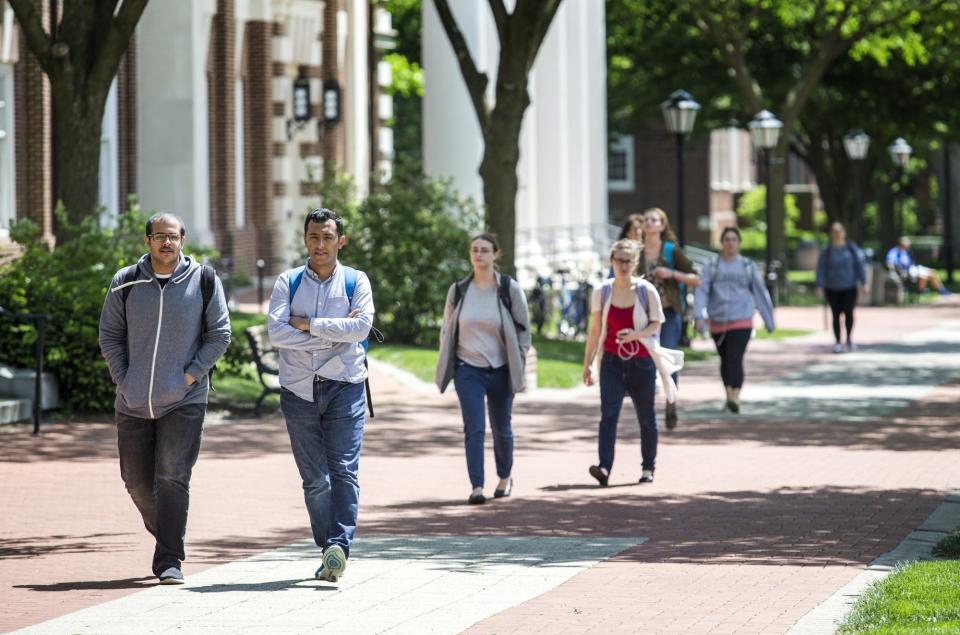
Perhaps the most visible was a proposed "per-student tax" based on student population.
Newark's City Council passed a resolution in February seeking to amend its charter to allow a "per-student tax" on universities. That levy sought "up to $50 per semester, per full- or part-time undergraduate or postgraduate student, at any college or university" attending in person, with that fee adjusting with inflation. In other words, some $2 million in annual impact for the city, depending on enrollment.
It made for a packed council chambers. Many students protested that the city would place this financial burden ultimately on young adults getting an education, while residents and other proponents saw it as the university itself paying a fair share.
The resolution passed anyway, while two similar tax proposals concerning lease revenues were later abandoned. Next, the city just needed state legislators to approve the change to its charter. And State Rep. Cyndie Romer introduced a bill at the top of May that would have allowed just that.
It stalled.
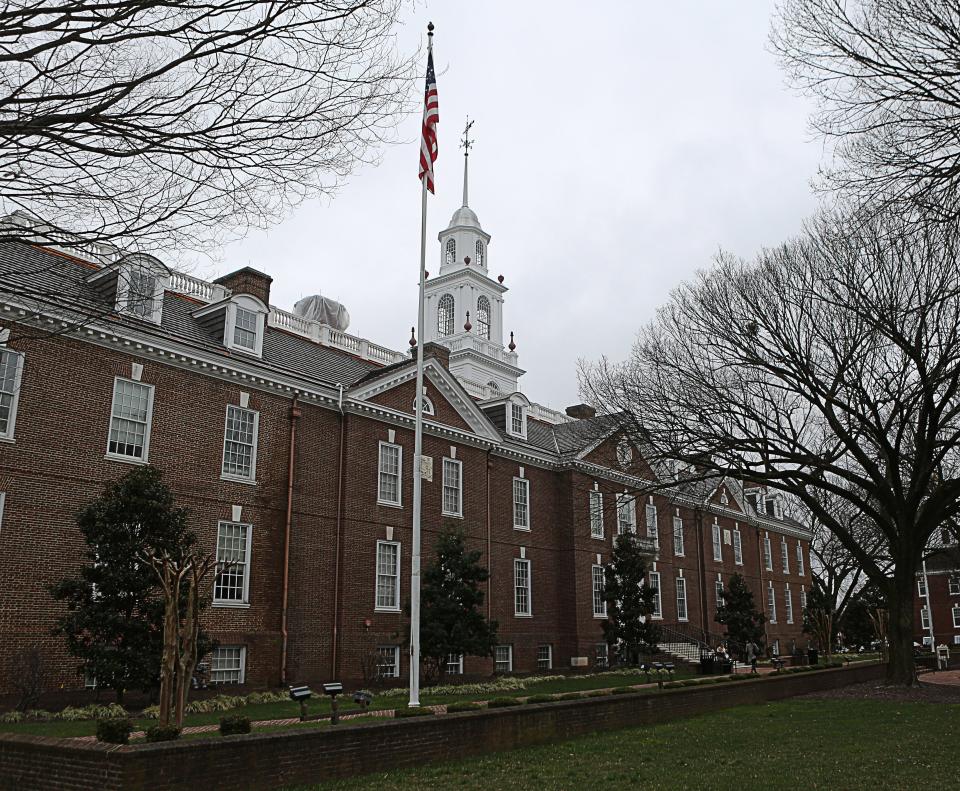
"I honestly think it's great legislation," said the Newark-area Democrat, whose House Bill 384 didn't leave committee. "Small towns across the country are experiencing significant financial impacts because of the number of tax exempt properties in their towns."
If she secures reelection, Romer plans to keep her eye on that legislation next year, as Newark's resolution calling for the charter amendment remains evergreen. Additional sponsors last session came in Reps. Paul Baumbach and Edward Osienski, as well as Sen. David Sokola, the Senate's president pro tempore.
City Manager Tom Coleman still hopes for something more permanent, like this tax.
"We're looking for something we can count on," Coleman said. "We've got a budget."
UD did not comment on the per-student tax proposal when reached last week. The university has spoken out against the measure in various council meetings this year, while also lobbying against the measure in Dover. This spring, the university's board of trustees already approved a 4% tuition bump across its student body.
"I don't think it's unreasonable," Romer said. "Our town almost doubles in size for eight months of the year. So I really see it more as a student-impact fee."
University of Delaware taxes: City of Newark moves forward on new UD student tax, looks to state for support
One-time boost, credit card fees
Delaware's 2025 Grants-in-Aid package passed as this session wrapped up.
In it, Newark saw a one-time infusion of $2 million for this fiscal year — roughly the goal of its per-student tax in one year — credited as support for cities with "local law enforcement agencies and fire departments serving higher education institutions." Dover, home to Delaware State University, also received $1.65 million.
As the city manager said, it still isn't permanent.
"Obviously we're still very happy about that, but it is one-time money," Coleman said. "So council's resolution requesting the charter amendment, from our perspective, is still alive."
Another line item in the package caught his eye.
"The University of Delaware may not make payments for utility bills and building permit fees owed to the City of Newark through the use of a credit card," the statewide legislation reads.
Seem random? Not to Coleman.
"Probably as long as I've been in the city, the university pays their utility bills to us with a credit card," said the city official of over a decade. "And basically every time they come and swipe their card, it costs us $15,000 to $20,000 to process that charge because their utility bills are very large."
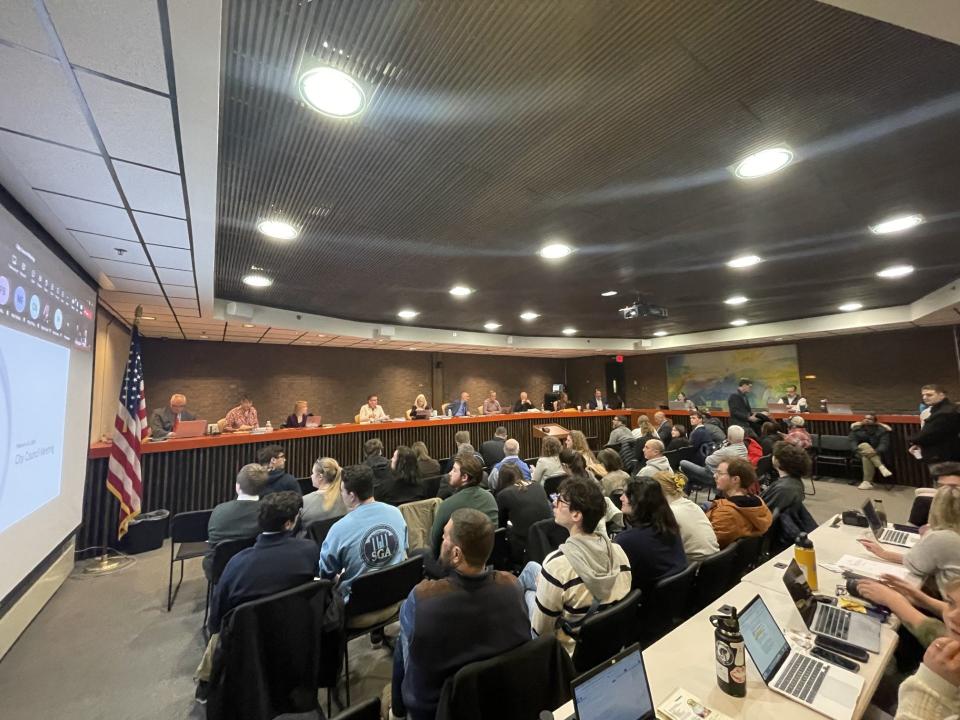
The university pays utility costs to the city, like water and electricity, as well as certain fixed payments in lieu of taxes that haven't been adjusted in some 60 years. UD has consistently used a credit card, according to the city, regardless of requests to adjust.
Coleman expects to save some $400,000 in processing fees annually, thanks to this provision alone. And UD seems amenable to the change.
"We have been discussing this with the City of Newark for the last several months, and we are prepared to make this change," the university said in a statement on ceasing credit card usage. UD also said the one-time $2 million payment "is the result of a monthslong collaboration" between state and local leaders.
Even if the item doesn't return in future packages, Newark has also installed credit card fees. Starting this summer, any resident making payments to the city by credit or debit card will now incur a service fee.
"That's one of the challenges with Grants-in-Aid," Coleman said. A quest remains for something more permanent.
How much does it cost to go to UD? University of Delaware approves 4% tuition hike
A Delaware 'PILOT' task force to take shape
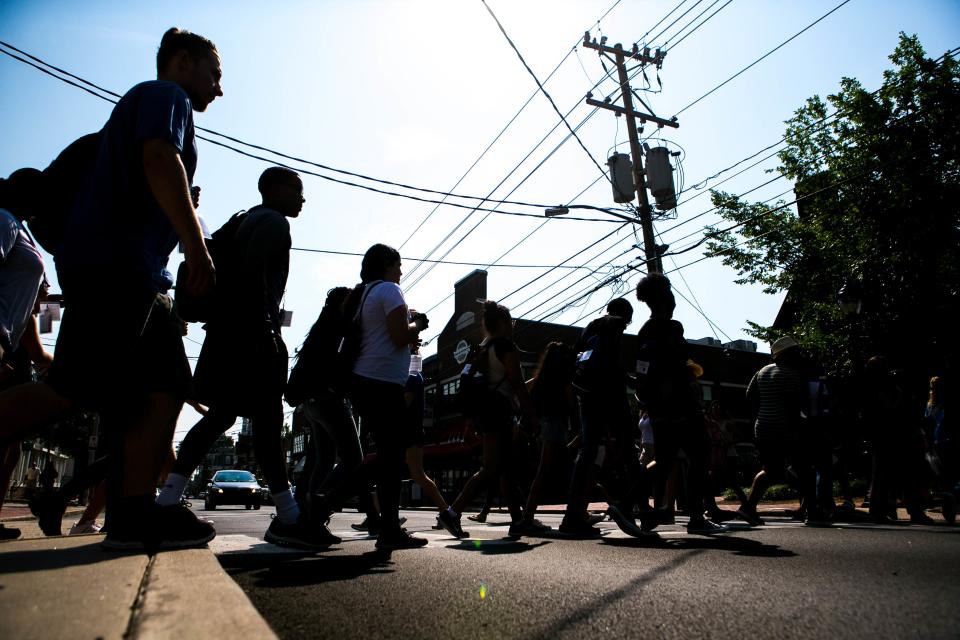
Newark has received state appropriations through Grants-in-Aid legislation over the years, but it has yet to be included in set "compensatory" payments from the state. Those are fixed "payments in lieu of taxes" allotted to various Delaware county seats, to compensate for tax-exempt property owned by the state.
This year, the city lobbied hard to get lawmakers to take a fresh look.
"Newark is not a county seat, despite having the largest percentage of state-owned property as a fraction of our total assessed value in the state," Coleman said. "So we felt that it was not handled equitably for the last 20 years."
In other words, Newark hopes to see its small city included in statewide PILOT-formula rewrites.
As written in state code, county seats are the only benefactors and any properties owned by the Delaware Housing Authority, Delaware Solid Waste Authority, Delaware State University or the University of Delaware are excluded all together.
"PILOT hasn't been looked at in decades," Rep. Romer said. "It's important to look at reassessing where that program is. Potentially, hopefully getting Newark to be incorporated into that program."
June saw a resolution pass in the General Assembly to create a task force focused on that question.
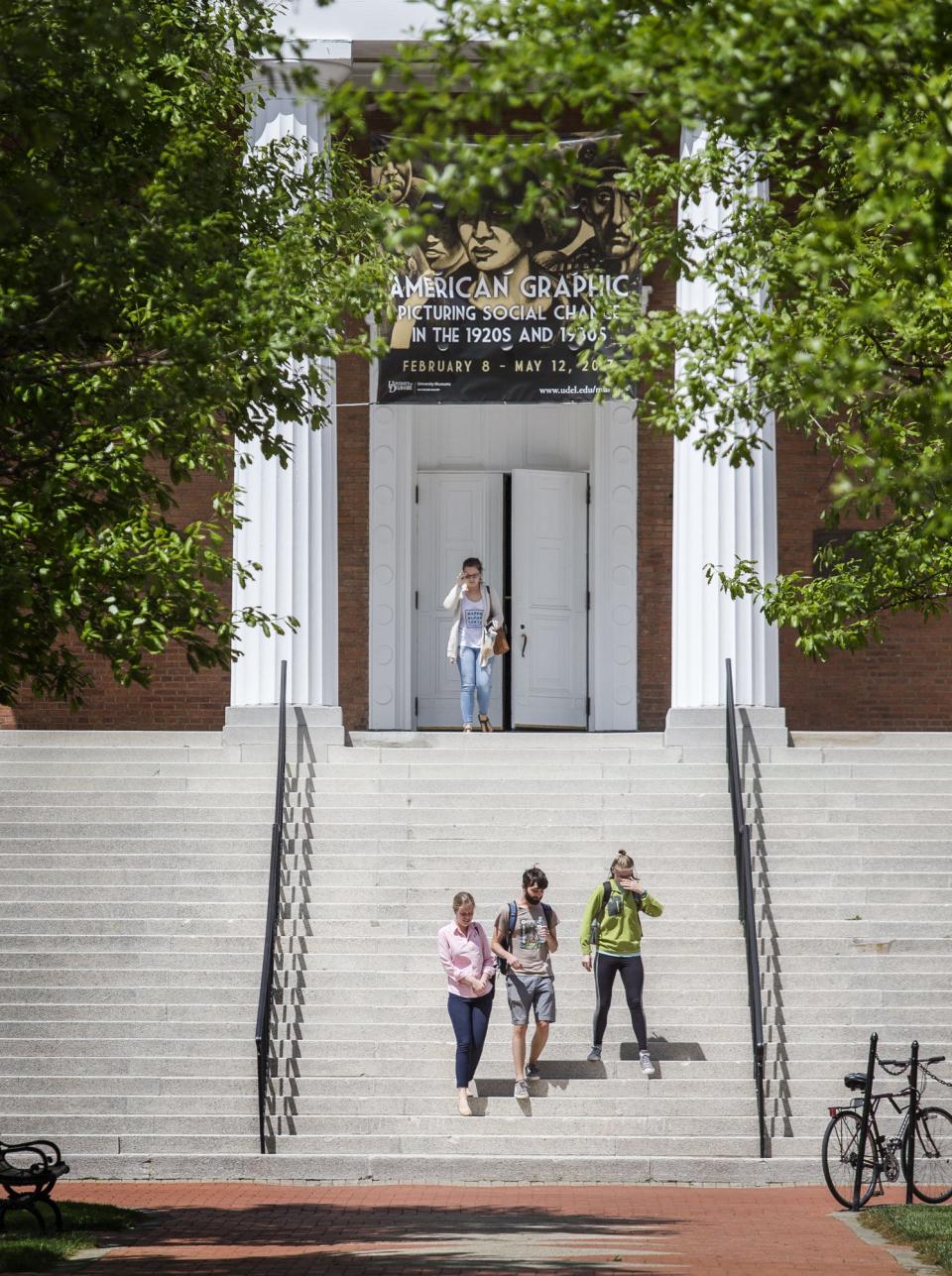
Senate Concurrent Resolution 167 creates a study group to evaluate current policy and recommend possible changes in "the eligibility criteria that should be used to determine which municipalities receive compensatory payments for tax-exempt property" owned by Delaware.
To be clear, this would be taxpayer money in motion. Any formula rewrites here would not impact the University of Delaware itself, which leaves Romer still interested in the proposed enrollment tax.
Back to state payments, this group is slated to bring together various state and city officials for a first meeting no later than Aug. 31, with a final report due to lawmakers by the last day of 2024. The resolution also made such reviews required at least every 10 years.
"I'm an optimist by default," Coleman said with a laugh, thinking of the task force's work to come.
"And I was speaking speaking with Dave Hugg, city manager of Dover, and I think he shares my optimism that this can be a good thing. We'll be able to figure out something that is predictable and equitable for everybody involved."
Sussex County: Milford again tables policy curbing 'controversial' issues in schools, citing work to come
Got a story? Contact Kelly Powers at kepowers@gannett.com or (231) 622-2191, and follow her on X @kpowers01.
This article originally appeared on Delaware News Journal: UD tax, fixed payments, $400K in fees: Into Newark's hunt to up revenue

